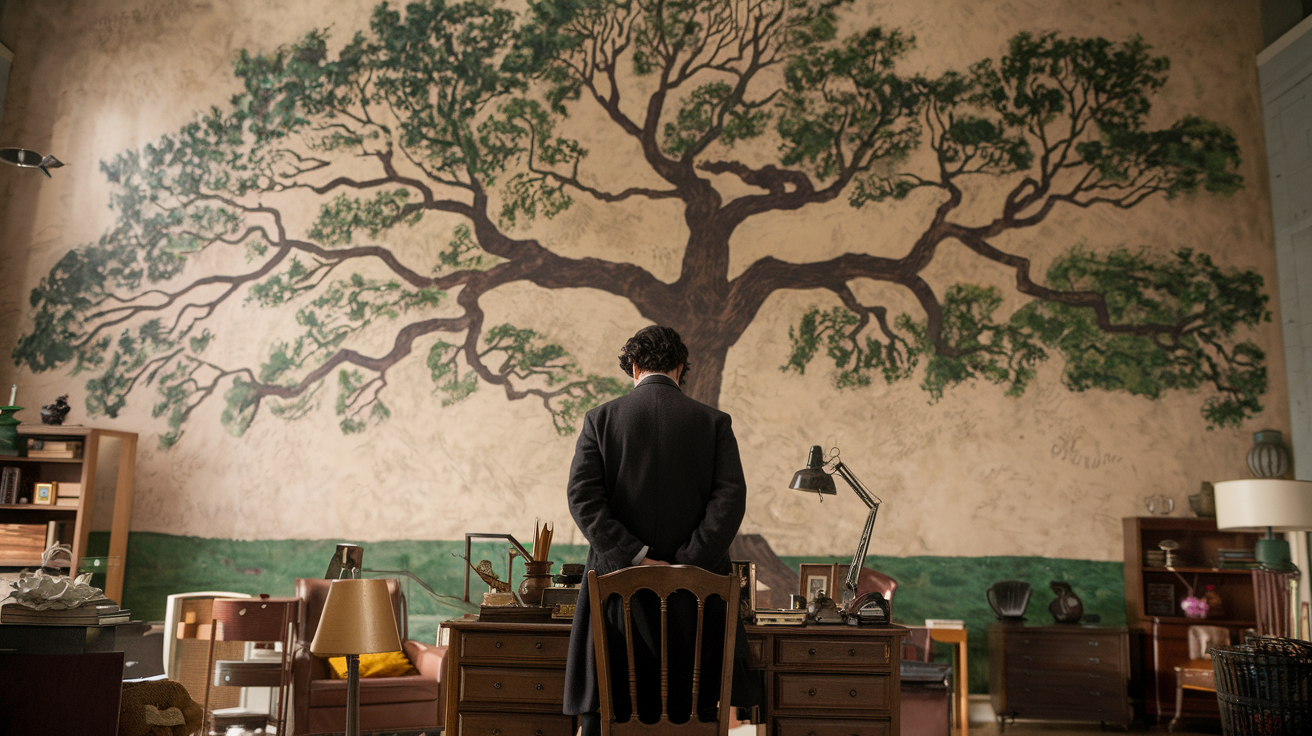Genealogists are detectives in disguise. Period.
You think tracing your family tree is just a hobby? Think again. It’s a full-blown investigation, and you’re the Sherlock Holmes of your lineage.
In this post, we’re diving deep into why genealogists are secretly the world’s best detectives. Buckle up.
1. Attention to Detail
Genealogists are detail freaks. And that’s a compliment.
They dissect records like a surgeon. Birth certificates, death records, census data – nothing escapes their eagle eyes.
A smudged date? They’re on it. A misspelled name? They’ll crack the code.
It’s this obsession with minutiae that breaks cases wide open. Just like a detective spots the tiniest blood spatter, a genealogist uncovers family secrets from a scribbled margin note.
Take the case of John Smith (not his real name, duh). He hit a brick wall tracing his great-grandfather. The solution? A misspelled last name in a census record. “Smyth” instead of “Smith”. Boom. Case cracked.
This level of detail orientation isn’t just helpful. It’s crucial. It’s the difference between a dead end and a breakthrough.
2. Research Skills
Research isn’t just a skill for genealogists. It’s their superpower.
They don’t just Google. They dive into archives, pore over microfiche, and decode ancient handwriting.
Credible sources? They demand them. Fact-checking? It’s their religion.
This mirrors how detectives build air-tight cases. No stone left unturned. No lead ignored. It’s all about the facts, ma’am.
Genealogists know the best sources. They can tell you why a death certificate is more reliable for a death date than a gravestone. They understand the limitations of each record type.
And they don’t stop at documents. They research historical context. Why did your ancestors move in 1846? Oh, just a little thing called the Irish Potato Famine. Context is king.
3. Problem-Solving Abilities
Family trees are puzzles. Complex, frustrating puzzles.
Genealogists thrive on this complexity. Missing branches? They’ll find them. Conflicting information? They’ll untangle it.
They’re masters at connecting dots that seem miles apart. Sound familiar? It’s exactly what detectives do when piecing together seemingly unrelated clues.
Take endogamy – the practice of marrying within a specific group. It’s a genealogist’s nightmare. Your third cousin could also be your second cousin once removed. Confused? Genealogists aren’t. They’ve developed strategies to untangle these knots.
They use tools like DNA analysis, timeline construction, and cluster research. They think outside the box. When traditional records fail, they turn to unconventional sources. Land records, newspaper articles, even old family recipes can hold clues.
4. Persistence and Patience
Genealogy isn’t for the faint-hearted. It’s a marathon, not a sprint.
Some family mysteries take years to solve. Decades even. But genealogists don’t quit.
They’ll chase a lead for months. They’ll revisit dead ends time and again. Why? Because breakthroughs come to those who wait.
This dogged determination? It’s the hallmark of every great detective who’s cracked a cold case.
Consider the case of adoptees searching for birth parents. These searches can take years. But genealogists persist. They use DNA, build extensive family trees, and collaborate with search angels. They don’t give up.
It’s this persistence that solves the unsolvable. It’s what turns brick walls into breakthroughs.
5. Analytical Thinking
Genealogists don’t just collect facts. They analyze them.
They look at relationships, historical contexts, migration patterns. They ask why. They ponder how. They question everything.
This critical thinking turns names and dates into stories. It’s the same skill detectives use to turn evidence into convictions.
A good genealogist can look at a family’s changing occupations over generations and deduce socioeconomic shifts. They can analyze naming patterns to predict family connections.
They don’t just accept information at face value. They corroborate. They cross-reference. They question inconsistencies. Was great-aunt Mabel really born in 1895 if her older sister was born in 1896? Time to dig deeper.
6. Storytelling Skills
Facts without context are just noise. Genealogists know this.
They weave facts into narratives. They bring ancestors to life through stories. They make history personal.
This isn’t just fluff. It’s crucial. Because a well-told story can spark recognition, trigger memories, and lead to new discoveries.
Detectives do the same when presenting cases. They’re not just sharing evidence. They’re telling the story of a crime.
A skilled genealogist can take a dry list of names and dates and turn it into a compelling narrative. They can help you understand why your great-grandfather left his home country, what life was like for your ancestors during the Great Depression, or how your family’s traditions evolved over time.
This storytelling doesn’t just make genealogy more interesting. It helps identify patterns, inconsistencies, and leads. It’s a powerful analytical tool disguised as an art.
7. Networking and Collaboration
No genealogist is an island. They’re part of a community.
They share resources. They exchange tips. They collaborate on brick walls.
This network is their lifeline. It’s how they access records, overcome language barriers, and break through dead ends.
Detectives rely on the same kind of network. Informants, experts, colleagues – solving crimes is a team sport.
Genealogists attend conferences, participate in online forums, and join local societies. They know that the key to unlocking their family mystery might lie in someone else’s research.
They’re not possessive about their findings. They believe in the power of shared knowledge. A breakthrough for one is a breakthrough for all.
This collaborative spirit has led to the creation of massive online databases, transcription projects, and DNA matching services. It’s turned genealogy into a global community of millions of amateur detectives, all working together to solve the mysteries of the past.
8. Technological Proficiency
Today’s genealogist isn’t stuck in the past. They’re tech-savvy.
DNA testing? They’re all over it. Online databases? They navigate them in their sleep. Digitized records? It’s their playground.
They’re constantly updating their tech skills. Because in genealogy, like in detective work, falling behind means missing out.
Modern detectives use the same cutting-edge tools. DNA analysis, digital forensics – it’s all part of the job.
Genealogists were early adopters of DNA technology for non-medical purposes. They’ve pushed for the development of sophisticated DNA matching algorithms and tools.
They use OCR technology to search digitized newspapers. They employ data visualization tools to map out complex family relationships. Some even use machine learning algorithms to predict where missing records might be found.
But it’s not just about using technology. It’s about understanding its limitations and biases. A good genealogist knows when to trust the computer and when to trust their own instincts.
Conclusion
There you have it. Eight rock-solid reasons why genealogists are the unsung heroes of the detective world.
You’re not just tracing your family tree. You’re solving the mystery of you. Embrace it. Own it.
Genealogists are more than hobbyists. They’re investigators of the past, unraveling mysteries that have lain dormant for generations. They’re piecing together the puzzle of humanity, one family at a time.
The skills they employ – attention to detail, research prowess, problem-solving abilities, persistence, analytical thinking, storytelling, networking, and technological proficiency – these aren’t just useful for family history. They’re the hallmarks of a great detective.
So the next time someone asks what you do, don’t just say you’re into genealogy. Tell them you’re a detective, specializing in cold cases – really cold cases.
Now, I want to hear from you. What genealogical mystery have you cracked? What detective skills did you use? Share your story in the comments.
Remember, every family tree is a cold case waiting to be solved. And you, my friend, are the detective for the job. So go out there and make Sherlock Holmes proud. Your ancestors are counting on you.



My first love is Georgia history, but genealogy always paid the bills. I have used genealogy in my history research, a valuable tool in solving mysteries, even murders. In an article that I published last year in the Georgia Historical Quarterly, I used genealogy to learn the secret, scandalous past of the first licensed woman detective Hattie Hipp Barnett of Atlanta. Her family genealogist had never heard of her, although his grandmother had lived with Hattie. One of my current projects is conman Robert A. Crawford. His grandson (d. 1986) worked on him for forty years without learning who he really was. Thanks to our modern toys, I discovered that he was previously William Aduston Rogers Crawford, a swindler who served five years in the Kentucky state pen!
In checking the 1900 census on my grandpa, I saw where his mom had 6 children but only 5 were living. All the kids were born in St. Louis, MO, and I was familiar with all 5 listed on this census. I started checking (all on microfiche) the birth records back for each year. I discovered one of the children was one of a set of twins. Further research showed that one twin died around 3 years old. Neither my dad, my aunt or uncle had ever heard of this, but I had documents to verify this. More research found he was buried near other family members. You never know what you will find.
I appreciate your thoughts. A new venture here in our small community of 500 is preparing for our 150 yr anniversary is to research all of the founding families of our town. We started with 1895 newspapers, clipped using newspapers.com any personal item that showed a family connection, a business, real estate transaction, vitals,and fan club activities like a birthday, or moving away gathering. Then memory tool of family search to attach to the individual. Success rate was high. Curious this.
If others are or have done this.
A very interesting read. It is true what you say and I must agree it is the puzzle solving that keeps me intrigued and results in long hours researching to solve the puzzles.
I enjoy delving into other people’s family history and showing them the families they did not know. The overwhelming happiness when all of a sudden they realise they have this large family they did not know they had and they can now leave this with their own descendants,
I couldn’t agree more!